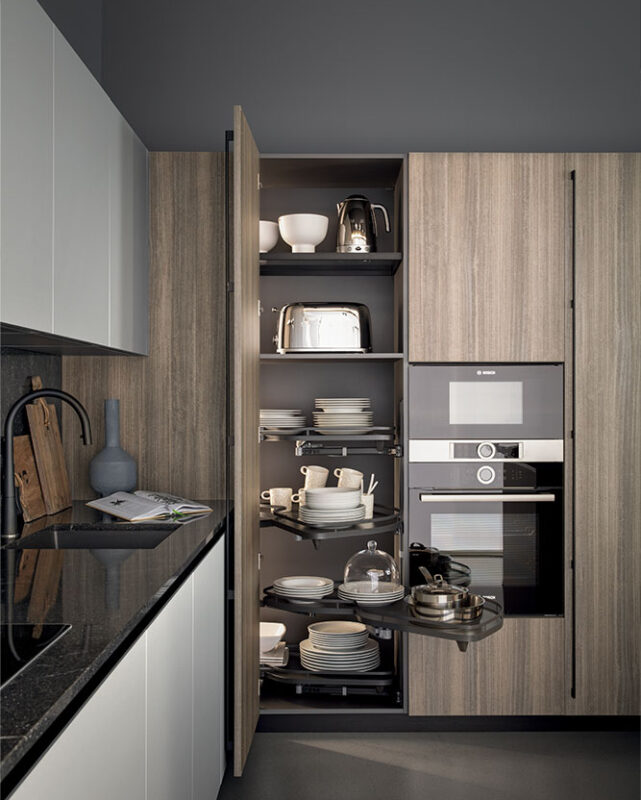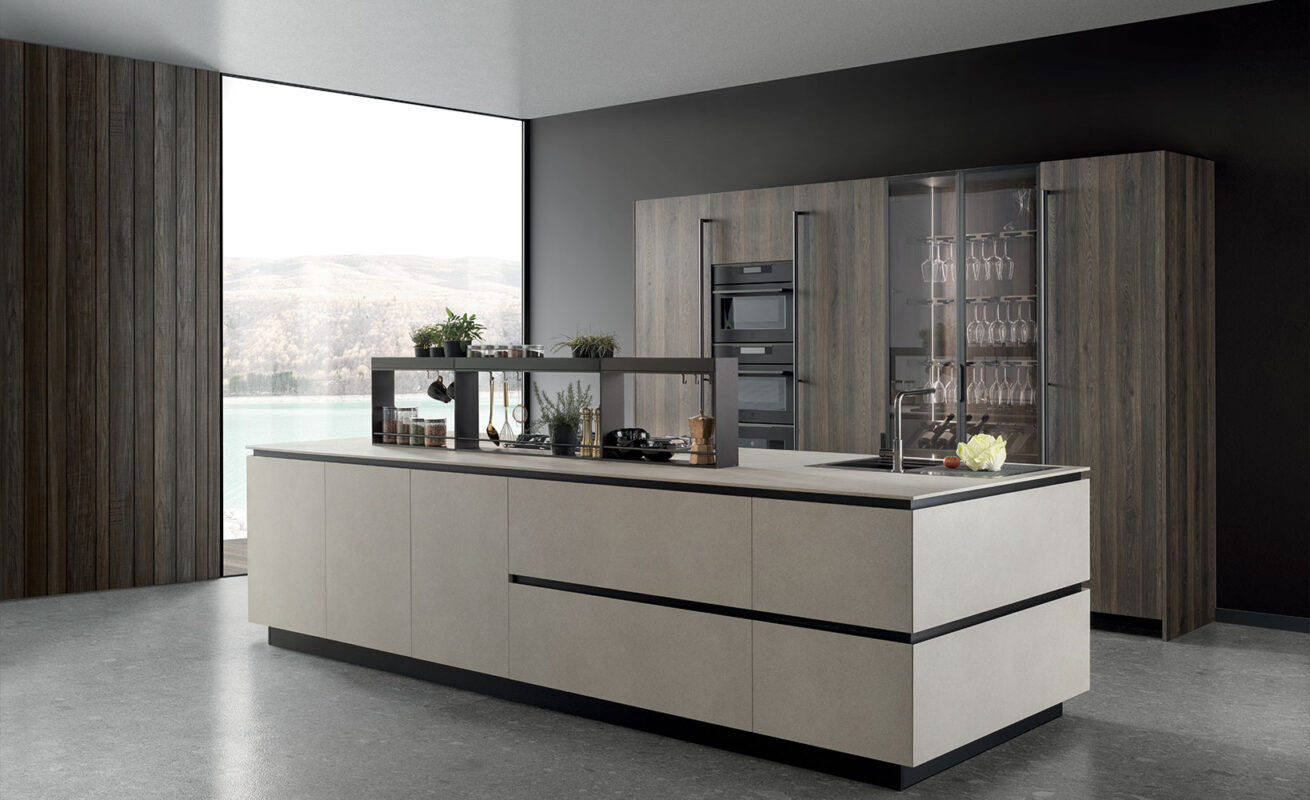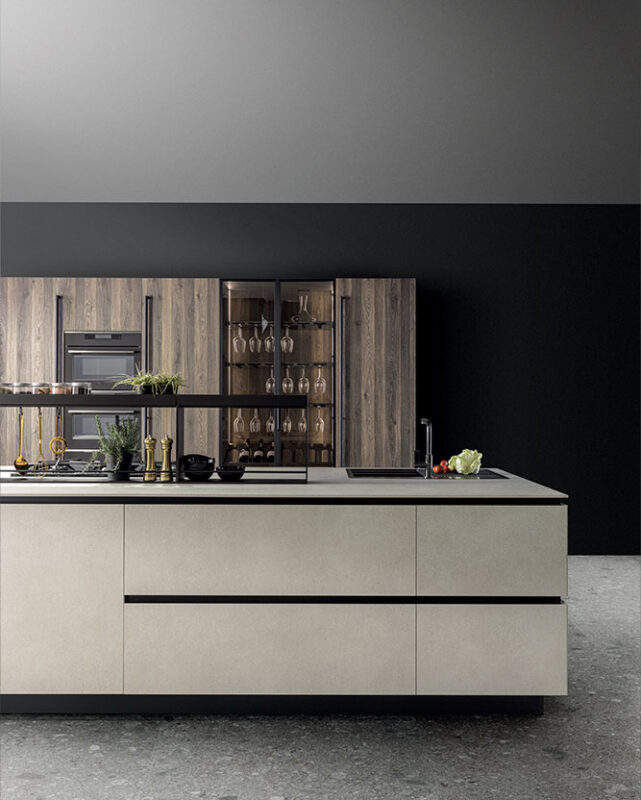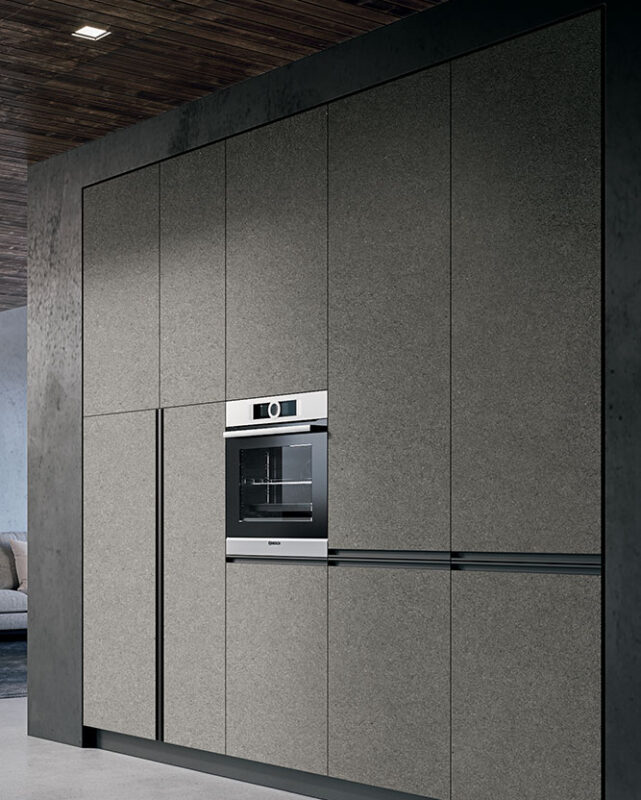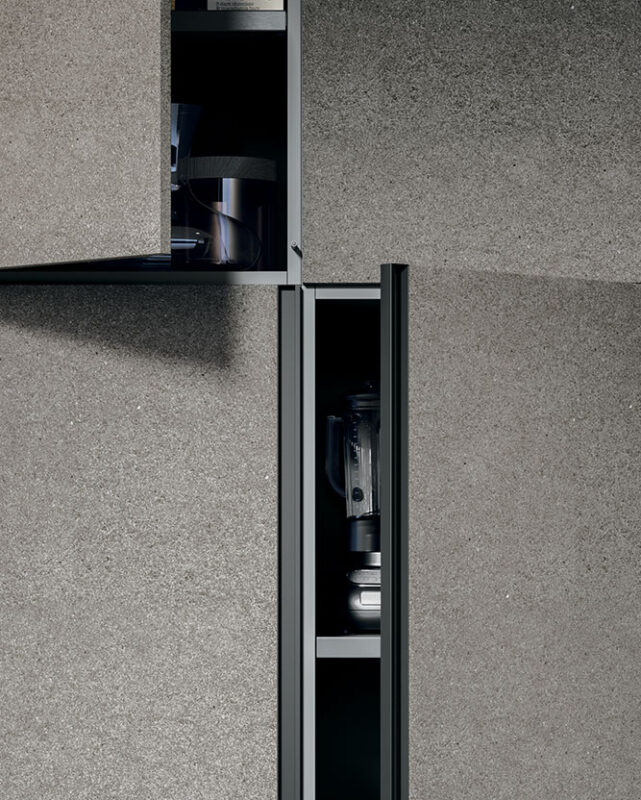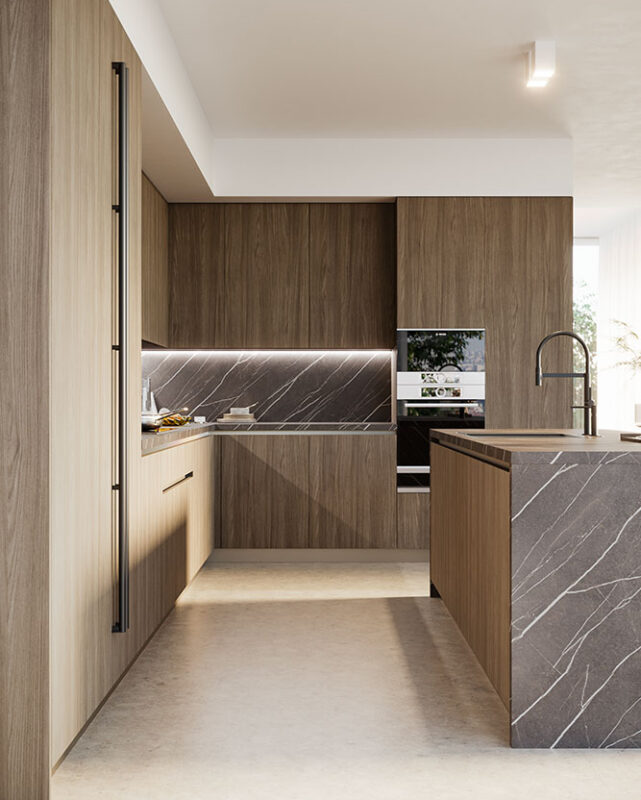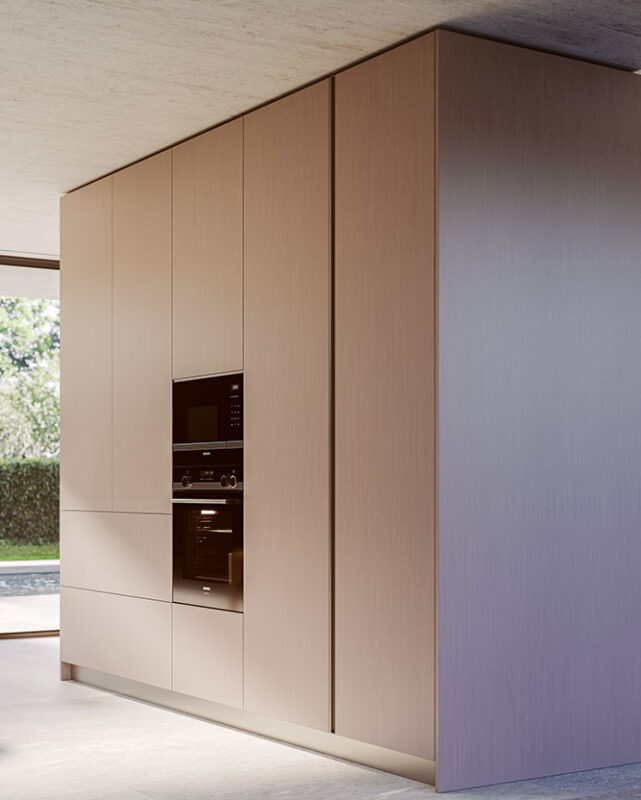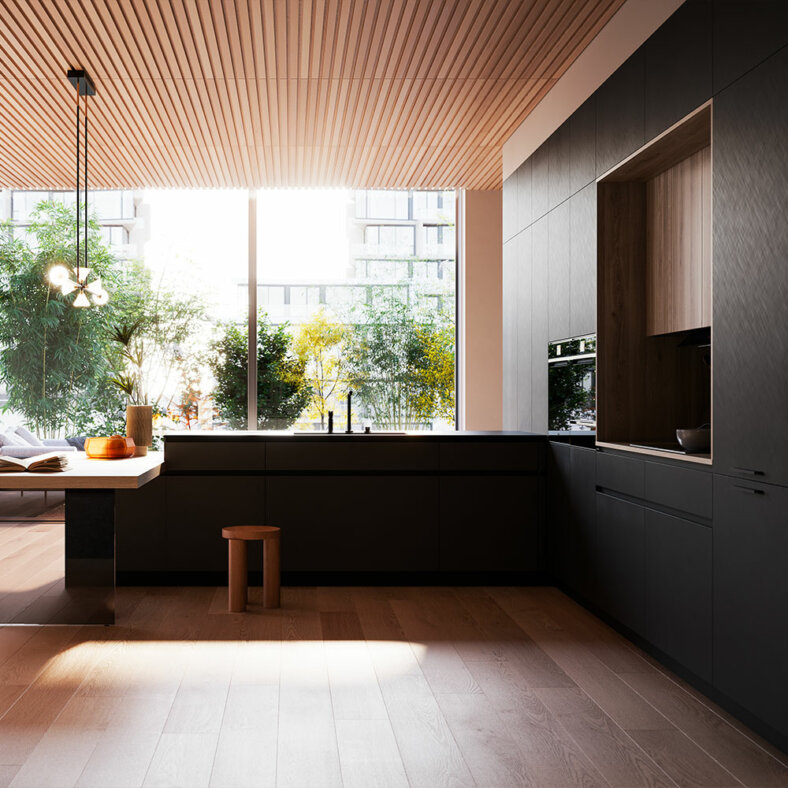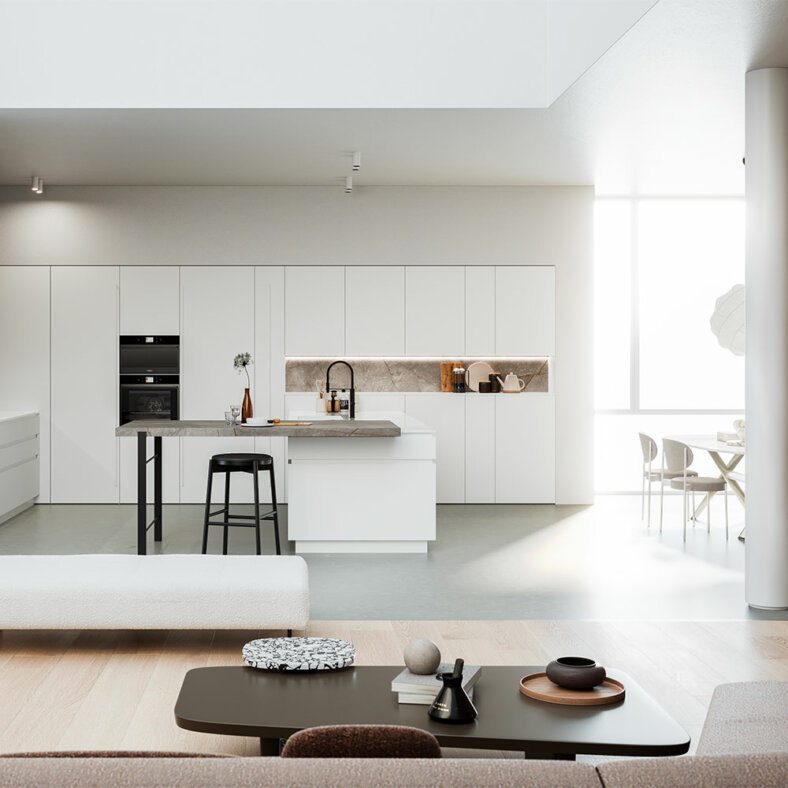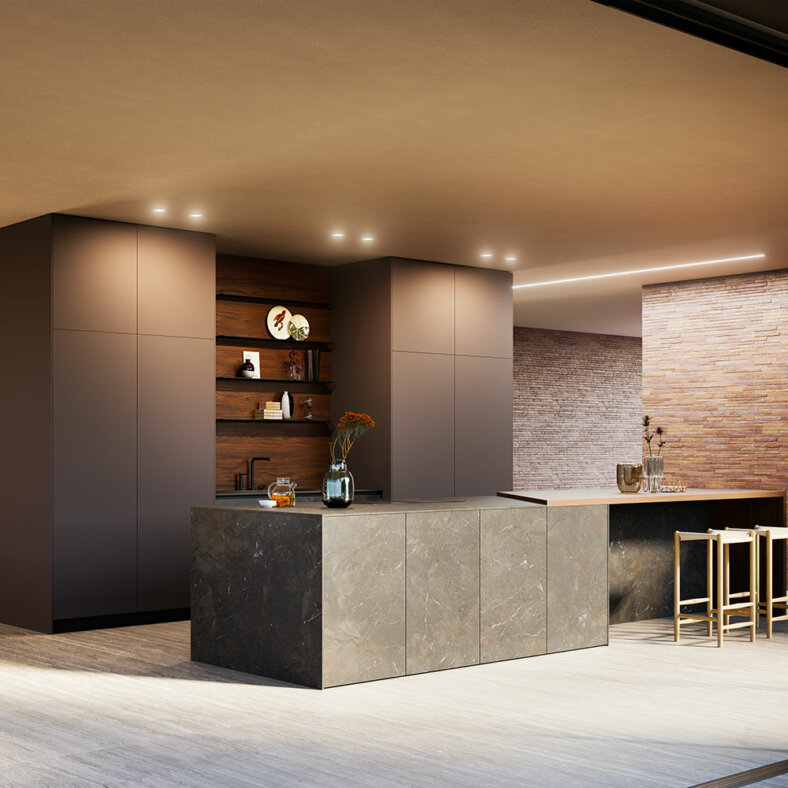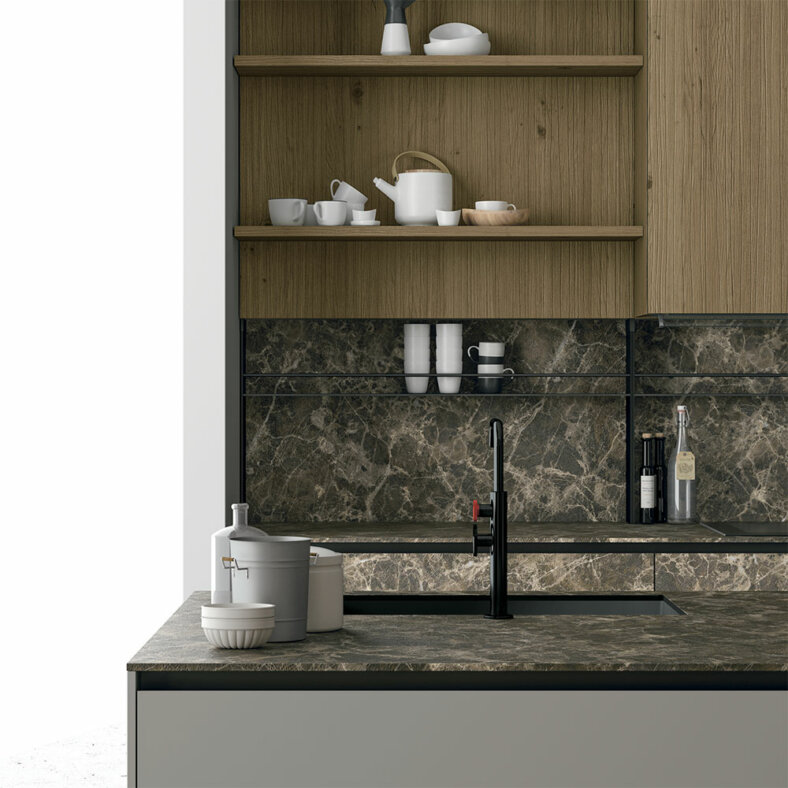Suggestions and guides
Tecnolam and Synchroface
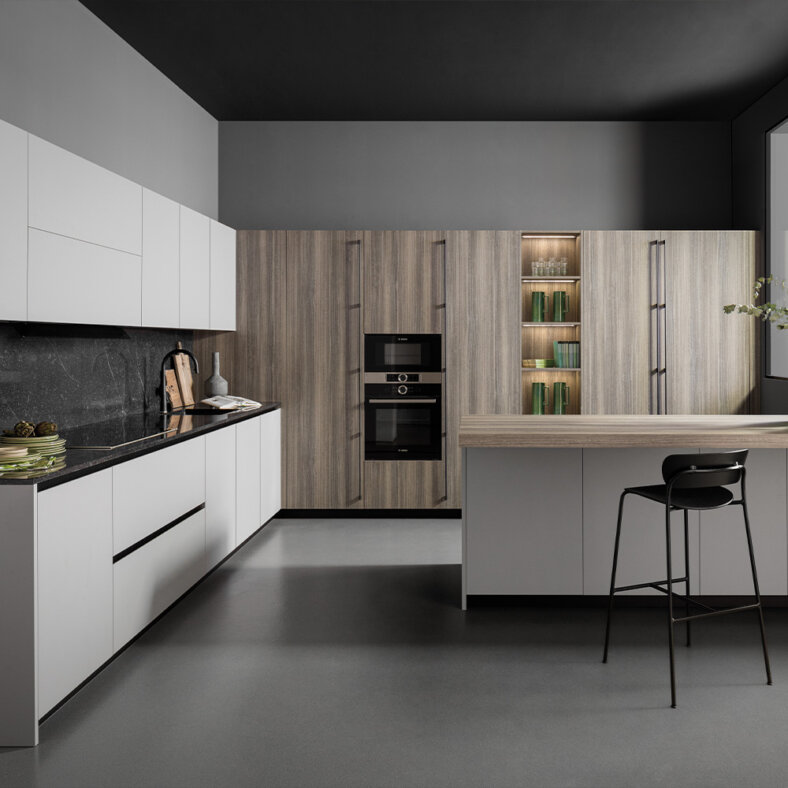
Tecnolam and its evolution: Synchroface
The Doimo Cucine Tecnolam panel is used in the kitchen to realise doors and carcasses because it offers versatile finishes, is easy to clean, affordable and with regularly controlled low emissions of formaldehyde. Synchroface is its evolution.
What is Tecnolam?
Tecnolam is a wood particle board panel finished on two sides in decorative paper, soaked in melamine resin. During this process, referred to as “ennobling” and which serves to fix the two sheets in a press, it assumes different aesthetic and tactile characteristics. During this phase the reliefs of wood grains or concrete textures are impressed to obtain the latest properties desired by the furniture market, at affordable costs. Tecnolam is both economical and attractive because it is easy and fast to work with, providing “finished” surfaces that require no additional painting. Characteristics of durability and resistance to scratching and solvents make it ideal for everyday use in the kitchen.
Characteristics of Tecnolam
Tecnolam panels are well-suited to use in the kitchen for their resistance to scratches and stains, affordable and available in a wide variety of finishes. Choices range from a broad selection of colours to the reproduction of numerous woods, and concrete-effects. The Tecnolam finish must be applied to raw particle board panels with minimum emissions of formaldehyde.
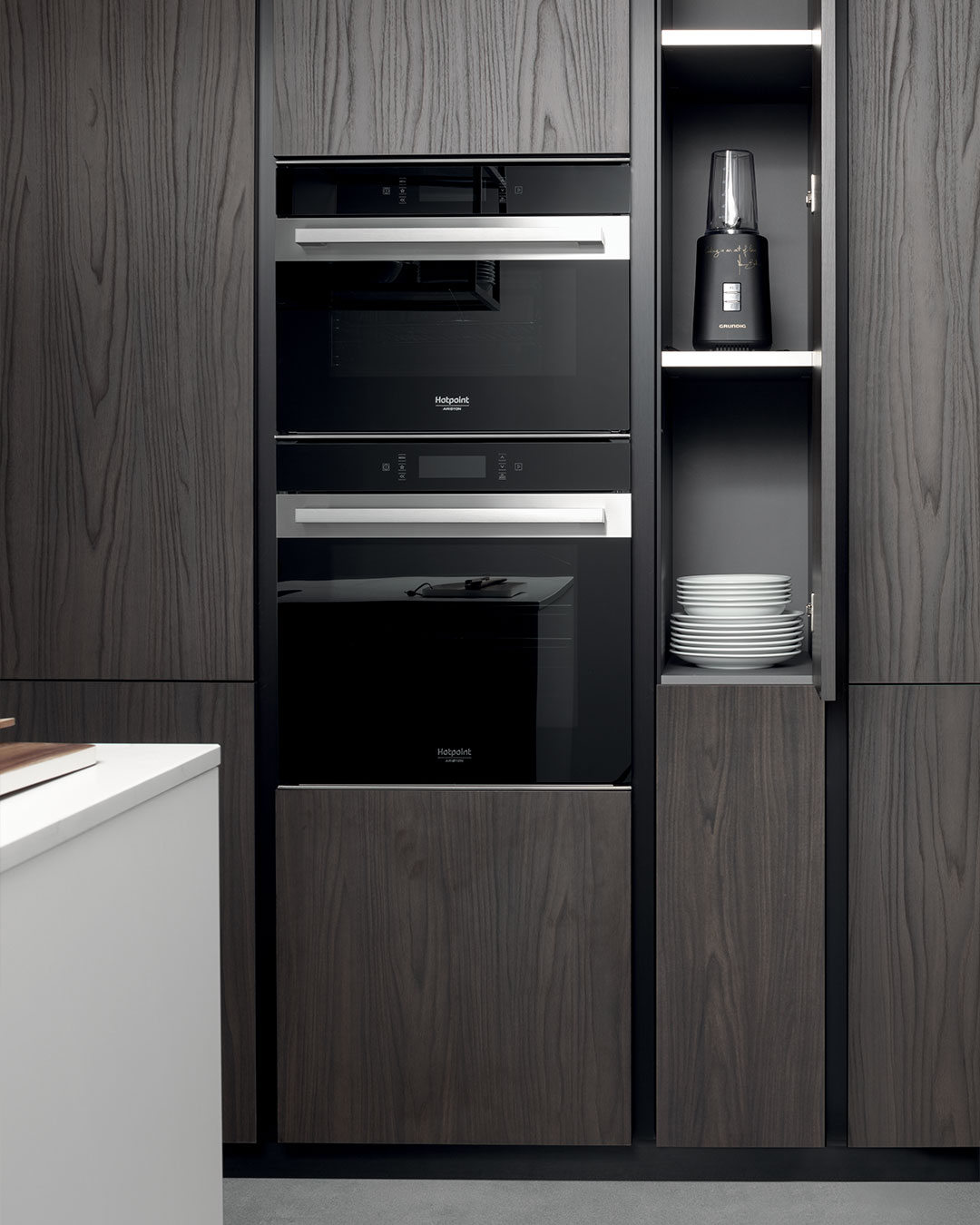
Characteristics of Synchroface
Synchroface is a tactile surface. It faithfully replicates noble materials such as wood and stone, reproducing their tactile and visual effects to produce an elegant and natural aesthetic. All of this is made possible by printed paper finishes that are more realistic than ever and applied to particle board panels. At the same time, it maintains all the characteristics of Tecnolam in terms of durability and resistance to scratching, stains and solvents. There is a further advantage: Synchroface is more affordable than the natural stones and woods it simulates so well.
Tecnolam or Synchroface kitchen doors
In the kitchen, melamine panels are used for doors, thanks above all to a vast range of available finishes and high resistance values. They are available in different materials and in different thicknesses, depending on the desired result. The Doimo Cucine All-arounD system uses them for doors in Tecnolam or Synchroface with finished thicknesses of 20 or 23 mm, depending on the chosen composition.
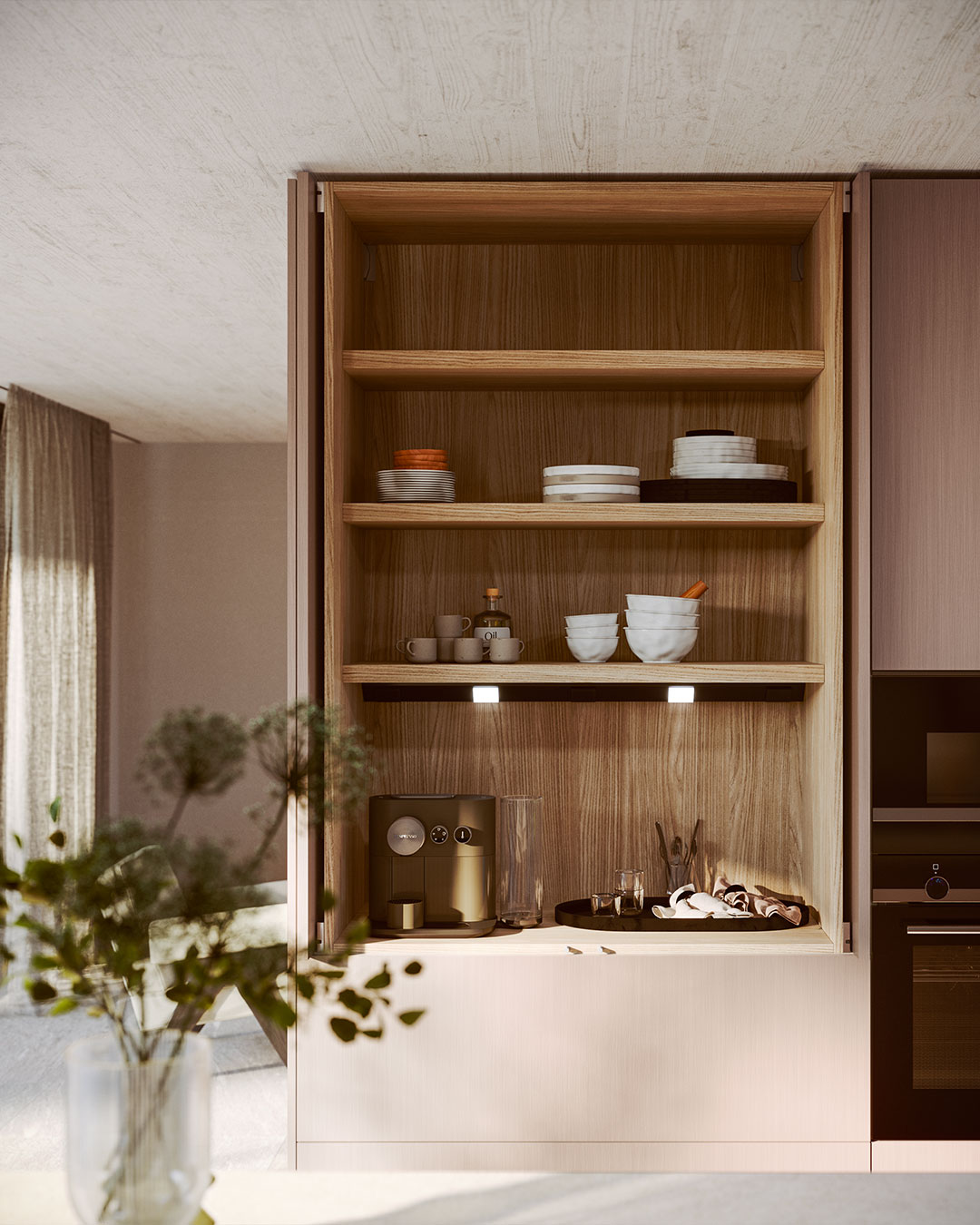
How to clean a kitchen in Tecnolam or Synchroface
For day to day cleaning, use a soft or micro fibre cloth and a neutral detergent. Immediately wipe away any deposits of water, wine, coffee, oil or other liquids. For stubborn stains, use a soft sponges with liquid detersives or neutral detergents. Remove any traces of cleaning products with a dry towel to avoid streaking or opaque areas.
For:
- limescale stains use a sponge soaked in tepid water or a dash of vinegar
- ink stains immediately clean the surfaces with a cloth soaked in detergent or denatured alcohol; alcohol should be used carefully and only when expressly permitted in the manufacturer’s instructions.
Avoid the use of:
- scouring pads
- products containing abrasive creams
- powder detersives
- vinegar and any other solvents and diluting agents
To ensure the durability of a Tecnolam or Synchroface kitchen, avoid any direct contact between these materials and sources of heat, such as pots and pans, coffee makers, clothing irons, etc. Ensure that all countertop appliances are well insulated on the underside to avoid overheating, which can cause cracking or colour alterations over time.
